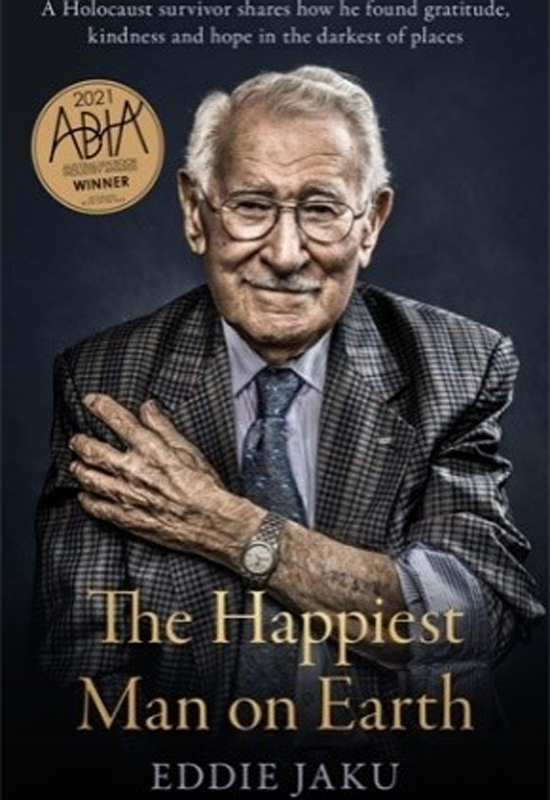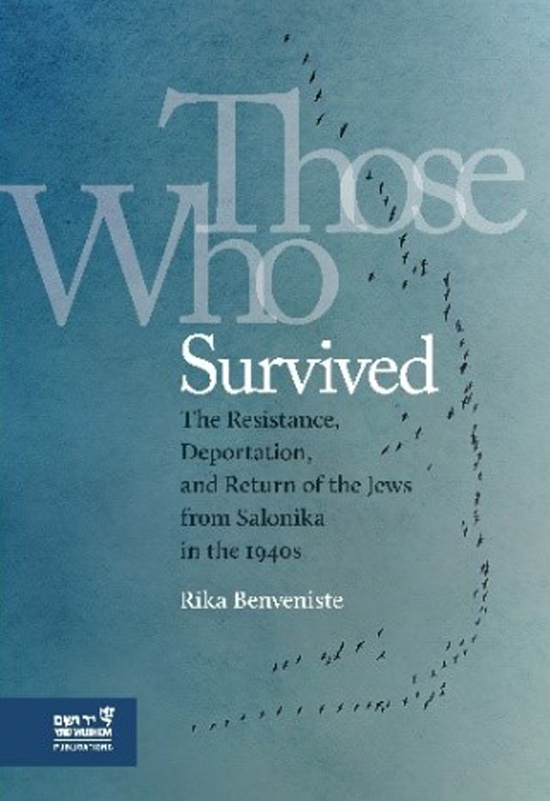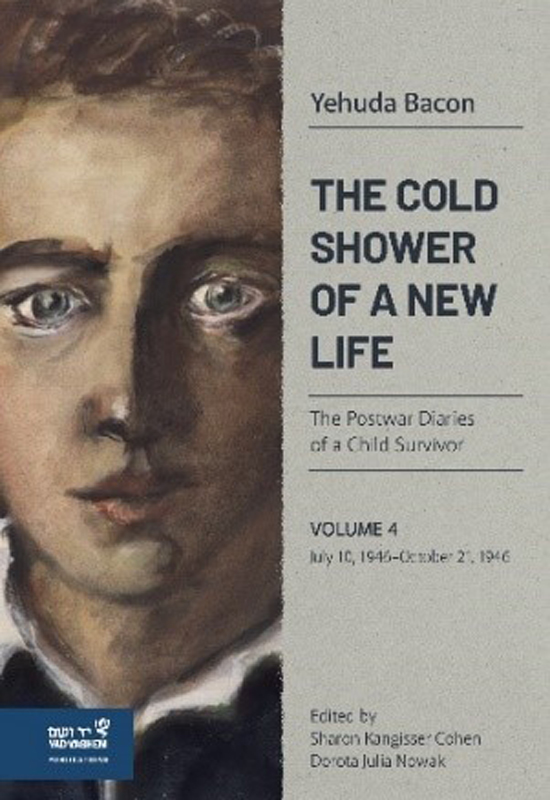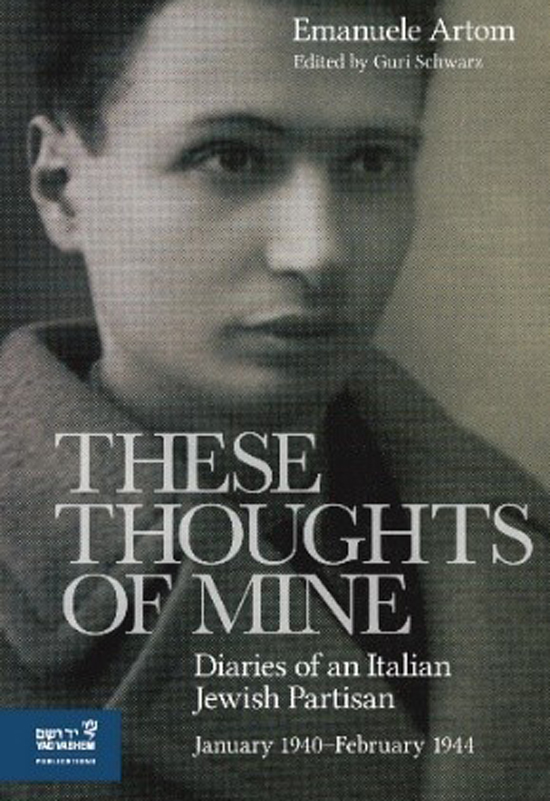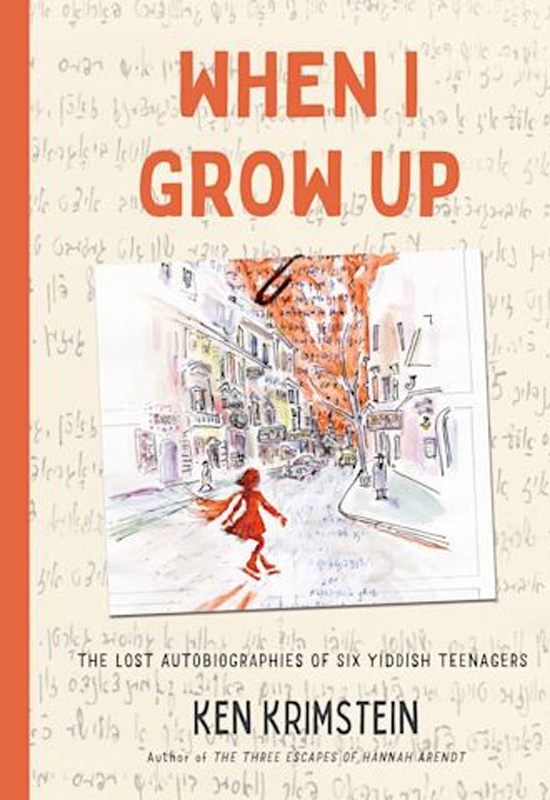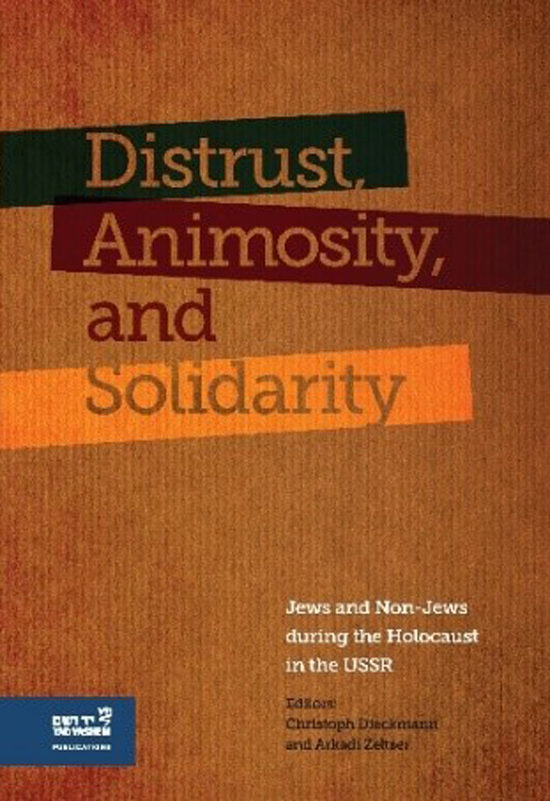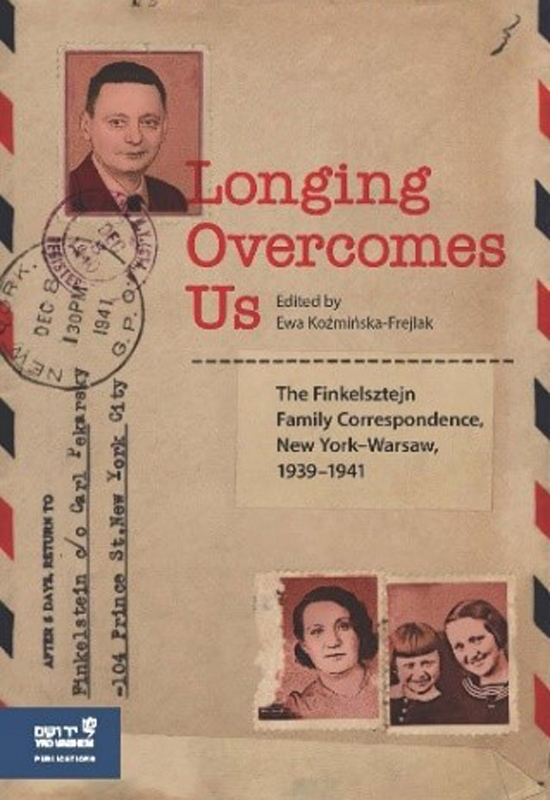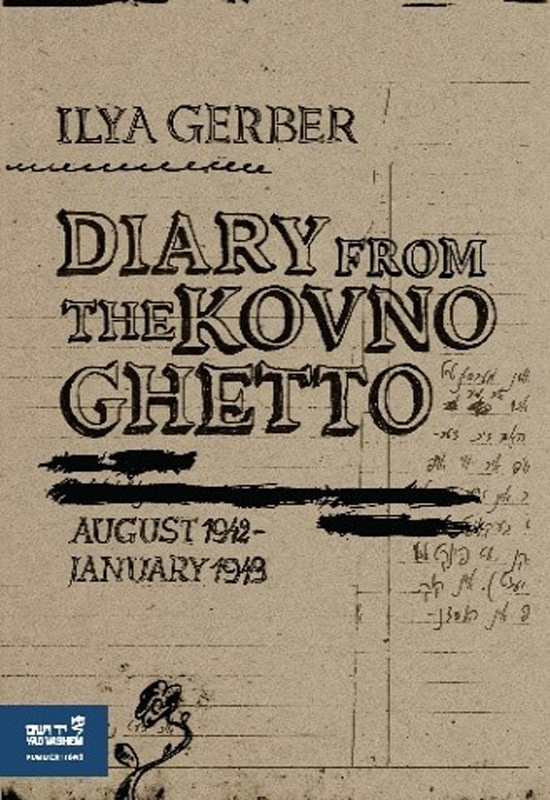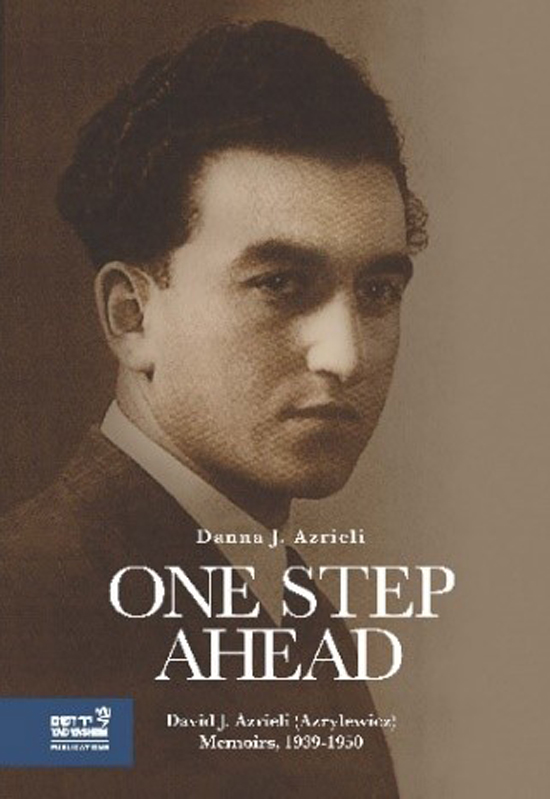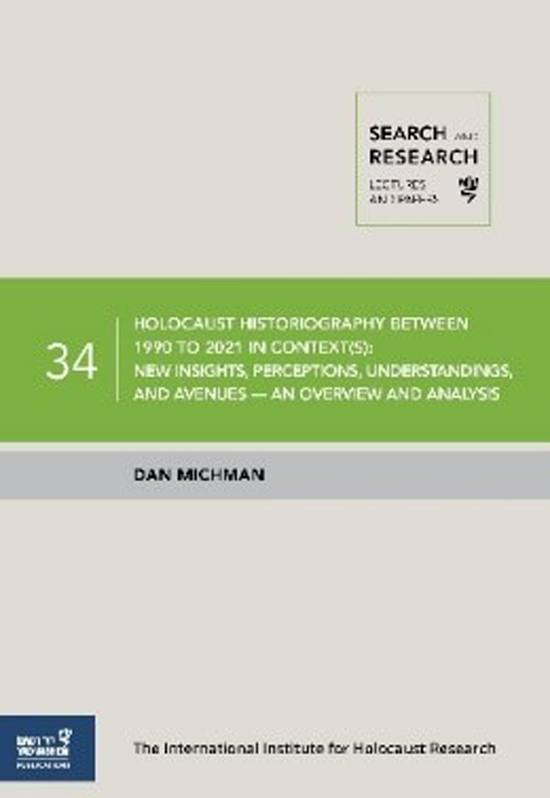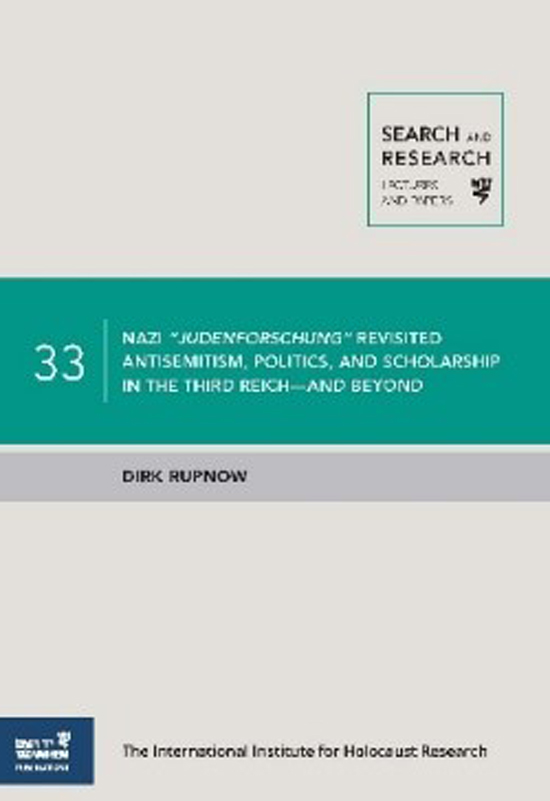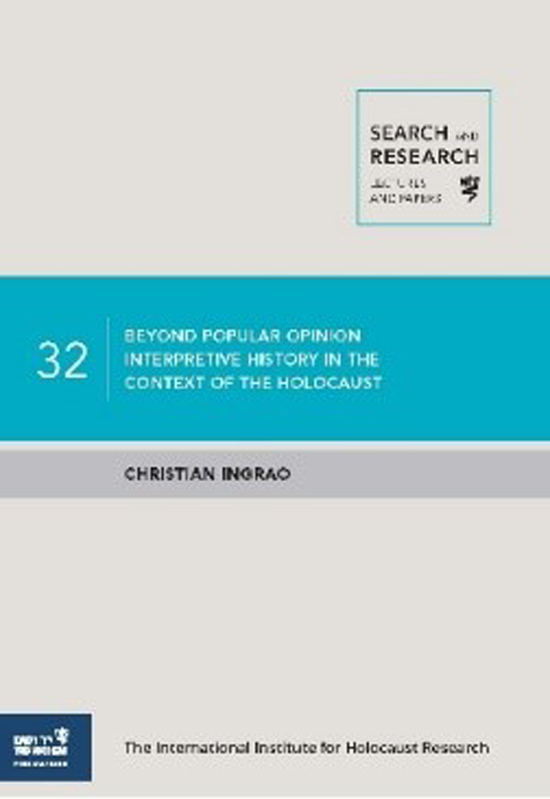The Happiest Man on Earth
By Eddie Jaku
Macmillan Australia 2020
Life can be beautiful if you make it beautiful. It is up to you.
Eddie Jaku always considered himself a German first, a Jew second. He was proud of his country. But all of that changed in November 1938, when he was beaten, arrested and taken to a concentration camp.
Over the next seven years, Eddie faced unimaginable horrors every day, first in Buchenwald, then in Auschwitz, then on a Nazi death march. He lost family, friends, his country.
Because he survived, Eddie made the vow to smile every day. He pays tribute to those who were lost by telling his story, sharing his wisdom and living his best possible life. He now believes he is the 'happiest man on earth'.
Published as Eddie turns 100, this is a powerful, heartbreaking and ultimately hopeful memoir of how happiness can be found even in the darkest of times.
Those Who Survived. The Resistance, Deportation, and Return of the Jews from Salonika in the 1940s
By Rika Benveniste
Yad Vashem, 2022
Before World War II, there were more than 50,000 Jews in Salonika. More than 46,000 of them were deported to the Nazi death camps, and around 96% of them perished there. The book tells the story of some of the few survivors. Using a vast wealth of personal testimonies and archival documents, this book traces the trajectories of three groups of people who shared a common experience of persecution – a group of about twenty young Jews from Salonika who joined the partisans and fought against the Germans; a group of 100–200 Jews from Salonika who survived the Nazi concentration and death camps, subsequently becoming DPs in the Feldafing camp, Germany; the last part traces the fate of one family that was deported to Bergen-Belsen.
The Cold Shower of a New Life
The Postwar Diaries of a Child Survivor (4 vol.)
By Yehuda Bacon
Yad Vashem, 2019-2022
World-renowned artist Yehuda Bacon was born in Czechoslovakia. Deported to Theresienstadt in 1941 and sent to Auschwitz-Birkenau two years later, he was among a group of teens selected to work as forced laborers. A survivor of the death marches to Mauthausen and Gunskirchen, Bacon began to keep a diary in July 1945, writing over 240 notebooks over the past seven decades. Through a mosaic of words and drawings, he recounts his past, contemplates his present, and imagines his future. In this volume, Bacon leaves the agricultural village of Mikveh Yisrael and moves to Jerusalem, embarking on studies at Bezalel. These notebooks expose his efforts to find and make a new home against the backdrop of the increasingly violent and tense political reality of Jerusalem in 1946.
These Thoughts of Mine: Diaries of an Italian Jewish Partisan, January 1940–February 1944
By Emanuele Artom
Yad Vashem, 2022
Emanuele Artom, an Italian Jewish intellectual, joined the resistance in 1943 after experiencing racial persecution. The first part of his diary, from the period January 1940–September 1943, is a rich source of information about cultural life in Turin, the development of racial persecution, the Allied bombings, and life between the fall of Mussolini and the beginning of the German occupation. The second part, from the period November 1943–February 1944, offers an unmediated representation of the hardships of partisan life, the divisions within the anti-Fascist front, social conflicts and gender dynamics, as well as the tensions between local populations and the fighters. Emanuele Artom died in the spring of 1944 after enduring atrocious torture at the hands of Fascist and Nazi tormentors.
When I Grow Up: The Lost Autobiographies of Six Yiddish Teenagers
By Ken Krimstein
Bloomsbury Publishing, 2021
When I Grow Up is New Yorker cartoonist Ken Krimstein's new graphic nonfiction book, based on six of hundreds of newly discovered, never-before-published autobiographies of Eastern European Jewish teens on the brink of WWII-found in 2017 hidden in a Lithuanian church cellar.
These autobiographies, long thought destroyed by the Nazis, were written as entries for three competitions held in Eastern Europe in the 1930s, just before the horror of the Holocaust forever altered the lives of the young people who wrote them.
In When I Grow Up, Krimstein shows us the stories of these six young men and women in riveting, almost cinematic narratives, full of humor, yearning, ambition, and all the angst of the teenage years. It's as if half a dozen new Anne Frank stories have suddenly come to light, framed by the dramatic story of the documents' rediscovery.
Distrust, Animosity, and Solidarity: Jews and Non-Jews during the Holocaust in the USSR
Editors: Christoph Dieckmann and Arkadi Zeltser
Yad Vashem, 2021
Interethnic relations in the Soviet Union and Eastern Europe during the Holocaust is a topic at the center of intense scholarly and public discussion. In this collection of essays, a broad range of leading researchers examine various aspects of this multifaceted issue from diverse perspectives. The authors’ insightful analyses of the relations among the Lithuanians, Ukrainians, Belarusians, Russians, Poles, and Jews shed light on the prewar views on and stereotypes of the Jews, and on the impact of the German and the Romanian occupation policies during World War II. What emerges is a complex mosaic of the attitudes of the Jews and the non-Jews toward each other.
Longing Overcomes Us: The Finkelsztejn Family’s Correspondence (New York–Warsaw, 1939–1941)
Editor: Ewa Koźmińska-Frejlak
Yad Vashem and Centrum Badan nad Zaglada Zydow, 2021
Chaim Finkelsztejn left his wife and two daughters in Warsaw on August 23, 1939 to travel to the Zionist Congress in Geneva. A week later, Nazi Germany and the Soviet Union invaded Poland, and his return home had become impossible. Exiled and separated from his wife and daughters, Chaim Finkelsztejn made efforts to organize aid to the Jewish communities in Nazi-occupied Poland and also to secure visas for his wife and daughters, but when the United States entered the war, the visa option and the ability to communicate with his family was taken from him. From the moment they were parted, the Finkelsztejns tried to stay in contact via letters. Filled with affection, longing, memories, and worries for the future, the letters provide insight into the increasing isolation, suffering, and despair of Jews under Nazi rule.
Diary from the Kovno Ghetto: August 1942–January 1943
By Ilya Gerber
Yad Vashem, 2021
Ilya Gerber was seventeen when the Kovno ghetto was sealed off in 1941. It appears that Ilya kept a diary from July 1941 to January 1943, however only the third notebook remained. In his diary, Ilya describes the daily ghetto life and sheds light on previously unknown facets of Jewish society, and also depicts the life and personal relationships of his family members and close group of friends, including romantic relationships, conflicting emotions and attitudes toward the situation, and a love of music, books, art, and poetry. Ilya Gerber was shot and killed on April 28, 1945, during a march from the Dachau concentration camp to Wolfsratshausen in Germany.
One Step Ahead: David J. Azrieli (Azrylewicz) Memoirs, 1939-1950
By Danna J. Azrieli
Yad Vashem, 2022
David J. Azrieli was born in Maków Mazowiecki, Poland. This gripping account of survival describes David’s extraordinary travels, always just one step ahead of life-threatening danger, which took him to the Soviet-occupied zones of Poland and later to Ukraine, Tashkent, and Buchara. He subsequently served in the Anders Army, before making his way from Baghdad to the frontiers of Mandatory Palestine. The memoir chronicles David’s arrival in Palestine, his studies at the Technion, his experiences as a soldier in the War of Independence, and his realization that most of his family had perished in the Holocaust. This story is all the more remarkable given Azrieli’s later achievements as a successful real estate developer and philanthropist.
Holocaust Historiography Between 1990 to 2021 in Context(s):New Insights, Perceptions, Understandings, and Avenues – An Overview and Analysis
By Dan Michman
Yad Vashem, 2022
Holocaust research has expanded enormously in recent decades and consists by now of a series of subdomains. Nevertheless, the central domain was and remains the domain of “the core period”: the years of the Nazi regime, 1933–1945, and of the regimes of Nazi Germany’s close allies and satellite countries. In this treatise, Prof. Dan Michman, Head of the Yad Vashem International Institute for Holocaust Research, surveys and examines the major developments and changes in research on the core period of the Holocaust since 1990 until today, and analyzes the various factors that paved the way toward and prompted them—politics, memory policies and interests, social psychological needs, generational changes, value transformations, and new scholarly methodologies—citing hundreds of references in many languages. The broad picture presented in this treatise leads to conclusions that erode several assumptions, which became entrenched in earlier stages of research and are still widely taught and are commonplace in popular discourse. Consequently, according to the author, there is a need to redefine our understanding of the anti-Jewish campaign unleashed by Nazism for which we use the terms “the Holocaust” or ”the Shoah” and fine-tune it. The treatise, which concludes with such a redefinition, is a “must” for those who are interested in the most updated picture of the state of historical research on the Holocaust.
Nazi "Judenforschung" Revisited Antisemitism, Politics, and Scholarship in the Third Reich – and Beyond
By Dirk Rupnow
Yad Vashem,2021
This article provides an overview of the various institutions for “Judenforschung” in the Third Reich and the dynamics of the field from the mid-1930’s until the end of World War II. It presents different responses to and perceptions of Nazi Judenforschung during and after World War II, analyzes the relationship between scholarship and antisemitism in Nazi Judenforschung, which was crucial for the entire research field and its practice in the Third Reich, especially regarding the Holocaust, and examines the specific nature of the participation of scholars in the Nazi crimes. Finally, it examines the repercussions in postwar Germany.
Beyond Popular Opinion: Interpretive History in the Context of the Holocaust
By Christian Ingrao
Yad Vashem, 2021
This study examines the cultural history of the social experience of the internalization of the National Socialist ideology among young activists, focusing on the young intellectual elites of the SS apparatus, among other scholars, whose recruitment served to shape German society, to conceive of public policies, and to imagine the utopic future of the Volksgemeinschaft and the racial and millennial Empire that would be established through conquest. It sheds a different light on the evolution of historiography of Nazi Germany, as well as of the Holocaust, and advocates the development of a more interpretive historical approach to understand National Socialist militancy.




